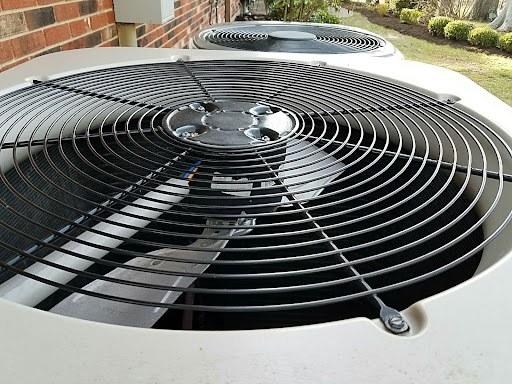Why Is There Mold on My AC Unit?

Discovering mold on your AC vent, filter, or coils compromises indoor air quality and poses significant health risks. More than just a minor annoyance, the presence of black mold on AC components is a critical warning sign pointing to underlying mechanical failures and environmental issues in your home. Certain factors actively promote mold growth in your air conditioner and understanding these can help you prevent this unwelcome problem.
When you spot mold on your AC filter, vent, or coils, it’s typically the result of multiple interrelated factors, not just excess humidity. Knowing what causes mold can empower you to stop its growth and enhance your home's air quality. In this article, we'll explore:
Have you ever noticed a musty odor when your AC kicks on? That could be a sign of mold. Let’s dive into why this happens and how you can prevent it.
Need Help with Your AC System?
Stay cool inside while temperatures rise outside with help from Advantage Air Mechanical. With over 30 years of experience in the cooling business, we offer AC tune-ups to keep your system functioning optimally on blazing summer days. Fast, convenient scheduling gets you the help you need quickly from trustworthy, highly trained technicians.
What Causes Mold in AC Units?
Mold growth in air conditioning units is often misunderstood and underestimated. Understanding the key factors that contribute to mold formation can help homeowners take proactive steps to prevent it.
Excessive Moisture
AC systems cool air by extracting humidity, which can lead to moisture accumulation if not properly drained. This excess moisture, especially in hidden areas like air handler units and drip pans, creates a perfect breeding ground for mold. Ensuring proper drainage and addressing leaks are crucial steps in preventing mold growth.
Poor Ventilation
Proper airflow is critical in preventing mold. If your AC system is improperly sized or if ventilation pathways are blocked, it restricts airflow, increases humidity, and diminishes unit efficiency. This creates ideal conditions for mold spores to settle and multiply. Regular checks to ensure clear ventilation can significantly help reduce mold risk.
Dust and Debris Accumulation
Dust and dirt in your AC system provide the necessary nutrients for mold to thrive. Regularly changing air filters and cleaning your system can starve mold spores and prevent them from growing and spreading throughout your unit.
Lack of Routine Maintenance
Routine maintenance is key to preventing mold in AC units. Regular inspections can identify mold issues early, allowing for timely cleaning of coils, replacement of filters, and ensuring optimal operation of your AC system.
Understanding and addressing these key factors can help keep your air conditioning unit mold-free and maintain high indoor air quality.
How to Prevent Mold in Your AC Unit
Ensuring the longevity of your air conditioning unit and maintaining high indoor air quality are crucial for a healthy home environment. Here are effective strategies to prevent mold growth on your AC vent, filter, and coils, keeping your system in optimal condition.
Regular Maintenance
In Tucson's harsh climate, consistent AC maintenance is crucial. Schedule regular inspections and tune-ups to keep your system running efficiently. Technicians should check for any standing water in drain pans, which can be a mold breeding ground, and clean your ducts and evaporator coils to maximize efficiency.
Improve Airflow
Enhancing airflow helps dry out any lingering moisture, reducing the risk of mold. Ensure your AC unit is correctly sized for your space to maintain proper moisture control and keep air circulating effectively. Additionally, keep grills and vents unobstructed to promote air movement in your home.
Humidity Control
Despite Tucson’s generally dry conditions, monsoon season can increase humidity, encouraging mold growth. Aim to keep indoor humidity levels below 60%, ideally between 30% and 50%. Using a dehumidifier during the humid months can help maintain these levels and prevent mold.
UV Light
Installing UV lights in your AC system offers a high-tech solution to combat mold growth. These lights kill bacteria and mold spores as they pass through your system, preventing them from circulating in your home. Positioning them in the ductwork or near the coils irradiates the air and surfaces, making them inhospitable for mold.
Are You Facing Indoor Air Quality Issues?
Maintain your home's coolness and air quality with an AC tune-up from Advantage Air Mechanical. Our courteous, knowledgeable technicians understand how issues with your AC can affect the air that enters your home, and we offer a 100% satisfaction guarantee for repairs they make.